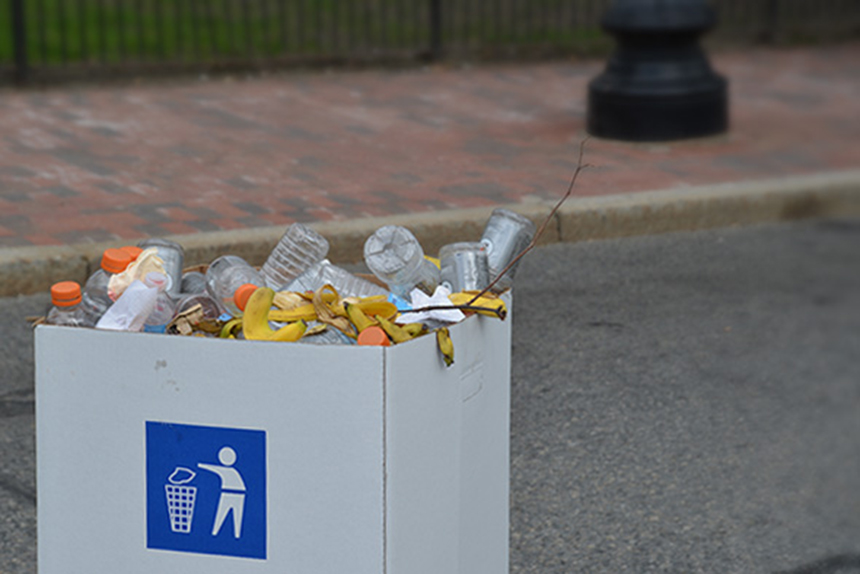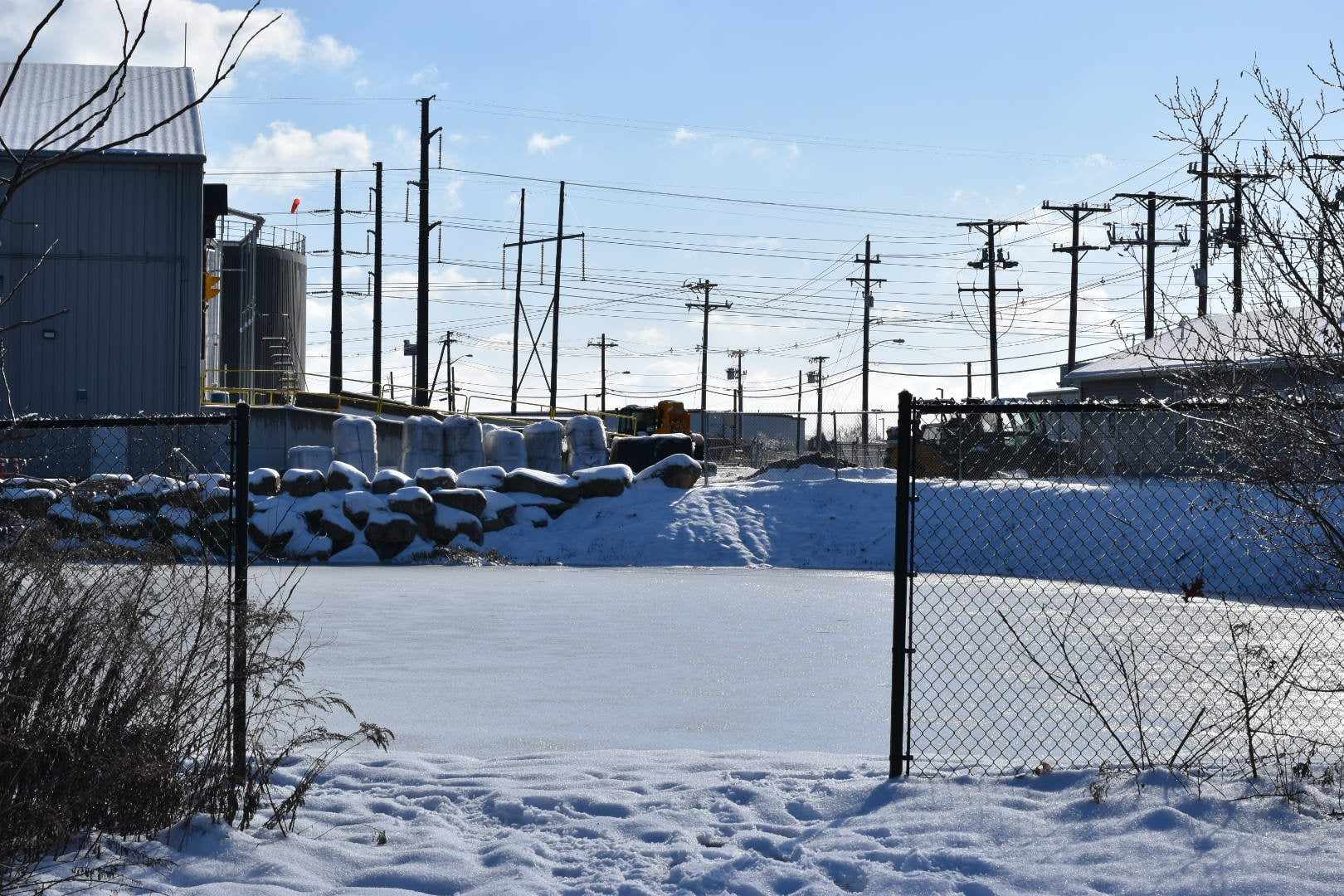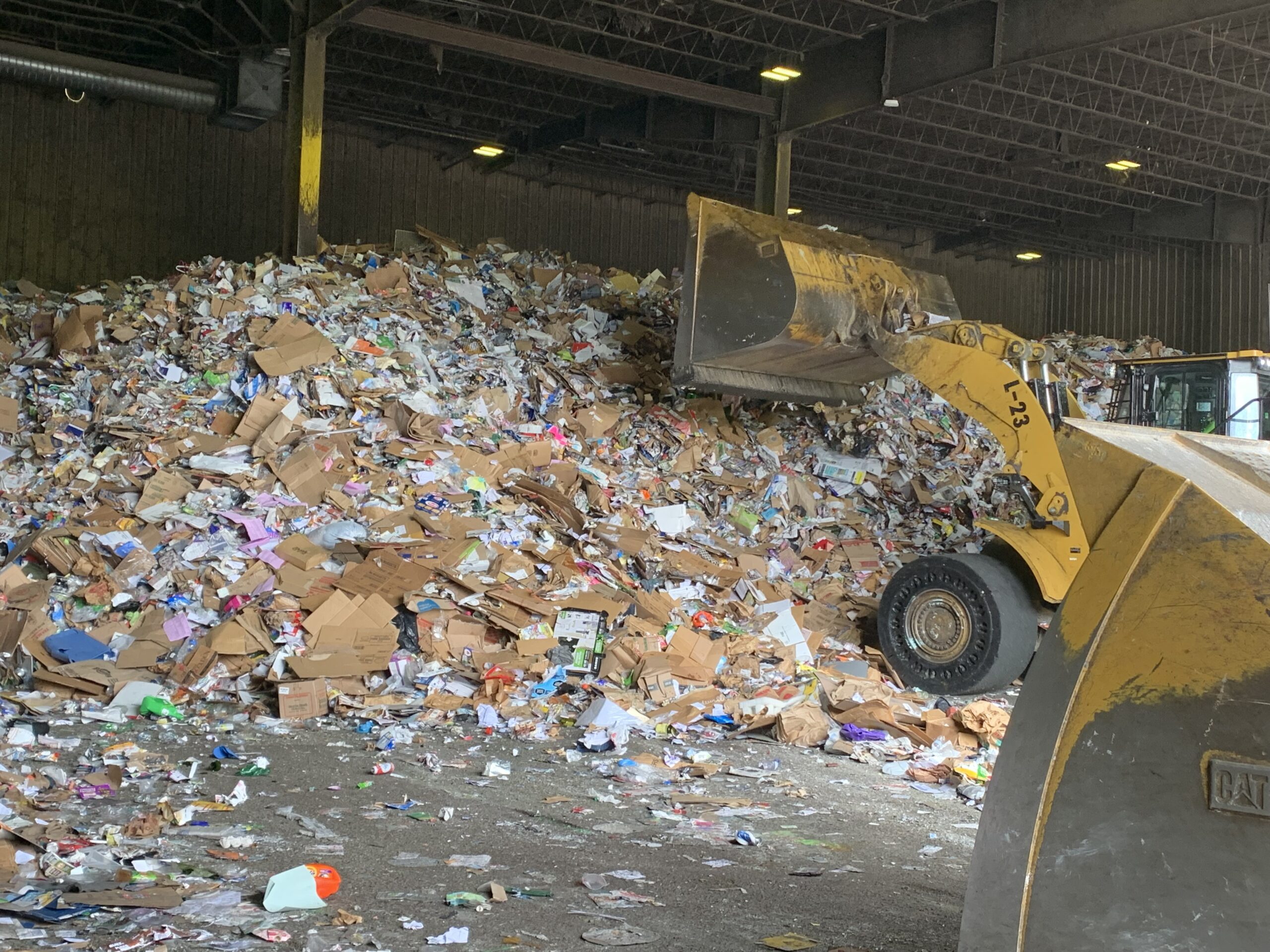Providence Chemist Breaks Down Urban Composting
October 23, 2019
PROVIDENCE — On a recent Thursday afternoon, Michael Bradlee manned his composting stand at the Armory Farmers Market on the city’s West Side. His goal: to spread the word about the virtues of urban composting.
“It’s not necessarily a great day to stand around and talk about composting but this is the time of year to think about it,” he said, acknowledging both the brisk wind and the leaves blanketing the ground. “This is Leaf-tober.”
A research chemist and composting enthusiast, Bradlee has cultivated a clear method of easing the compost-shy into his world: speak slowly and use analogies. Soil is simply “finely broken-down old mountains;” cold composting, a nearly-no-maintenance method that entails layering food scraps on top of mulch, is lasagna-style; hot composting — the kind he recommends for city dwellers — is no more challenging than simple cooking.
The right proportions of leaves to food scrap — one to one by weight, three to one by volume — make it possible for microorganisms to transform cores and pits into super-nutritious matter that feeds gardens. Composting serves another important purpose: it keeps organic matter from piling up in landfills, where, improperly aerated, it wreaks havoc by producing methane, a potent greenhouse gas, as well as lung-irritating compounds.
Bradlee takes in about 1,200 pounds of food scraps a week through his Smith Hill nonprofit, the Community Compost Depot at Frey Gardens. Enrolled participants pay what they can to drop off their compostables for Bradlee, who does the dirty work in 20 95-gallon containers. Bradlee also owns a related company, Earth Appliance Organics, through which he sells composting supplies.
As part of his community composting program, Bradlee accepts all sorts of food scrap, including meat, fish, and bones, as well as used fry oil, oxygen-bleached paper, and compostable cutlery. He doesn’t accept chlorine-bleached paper or plates and cups labeled compostable — many manufacturers use per- and polyfluoroalkyl substances (PFAS), a group of toxic chemicals, in their coating.
And although it may seem to go without saying, he doesn’t he accept pet waste, either. (“I did once have someone bring me a whole 5-gallon pail filled with doggy-doo bags,” the Providence resident said. “It was just too startling to keep.”) But his reasoning stretches beyond disgust — dog and cat feces can contain parasites and bacteria, such as salmonella, that are harmful to humans.
At the moment, Bradlee sells his compost to individuals. But he’s hoping to scale up. He’d like to sell his compost at retail sites, as well as create a food scrap pick-up service to make his service available to a wider geographic expanse of participants, although he’s hesitant to develop a program so expensive that it isn’t accessible to those who can’t afford to pay for composting services.
It’s an exciting time for Bradlee. Recently, he received a notice of allowance from the U.S. Patent and Trademark Office for his novel composting system, which he calls an orthogonal aeration system. It consists of vertical and horizontal plates that circulate gases and liquids through a compost container to optimize the process.
But this can also be done the old-fashioned way, which Bradlee demonstrated using a compost aerator, essentially an oversized blender blade topped with the handlebars of a no-frills pogo stick. He mashed and twisted his aerator into the leaves and food scraps in one of his compost bins, letting oxygen in and harmful gases out.
Another service he would like to offer down the line is the composting of bodies, which, he readily admitted, is “totally wild.” He’s been inspired by a family he heard about in a recent podcast who composted a deceased loved one, which they then sprinkled in their garden.
Earlier this year, Washington Gov. Jay Inslee signed legislation allowing the practice of “aboveground decomposition,” making Washington the first state to explicitly allow human remains to become compost. The law, which takes effect in May 2020, will allow bodies to be placed in a receptacle, along with organic material such as wood chips and straw, to help speed up the natural transition of human remains into soil.
And although he hasn’t yet seen a demand for such a service himself, (“No one’s dropped off their pet Fluffy that just passed away or their Aunt Millie,”) he would like to move in this direction. For Bradlee, this isn’t merely another business venture.
He stopped plunging and laid the aerator to rest against the bin.
“Some days when I’m mixing my compost, I’m like, you know my last composting action is going to be me going through one of these bins,” he said.
Categories
Join the Discussion
View CommentsYour support keeps our reporters on the environmental beat.
Reader support is at the core of our nonprofit news model. Together, we can keep the environment in the headlines.
We use cookies to improve your experience and deliver personalized content. View Cookie Settings



